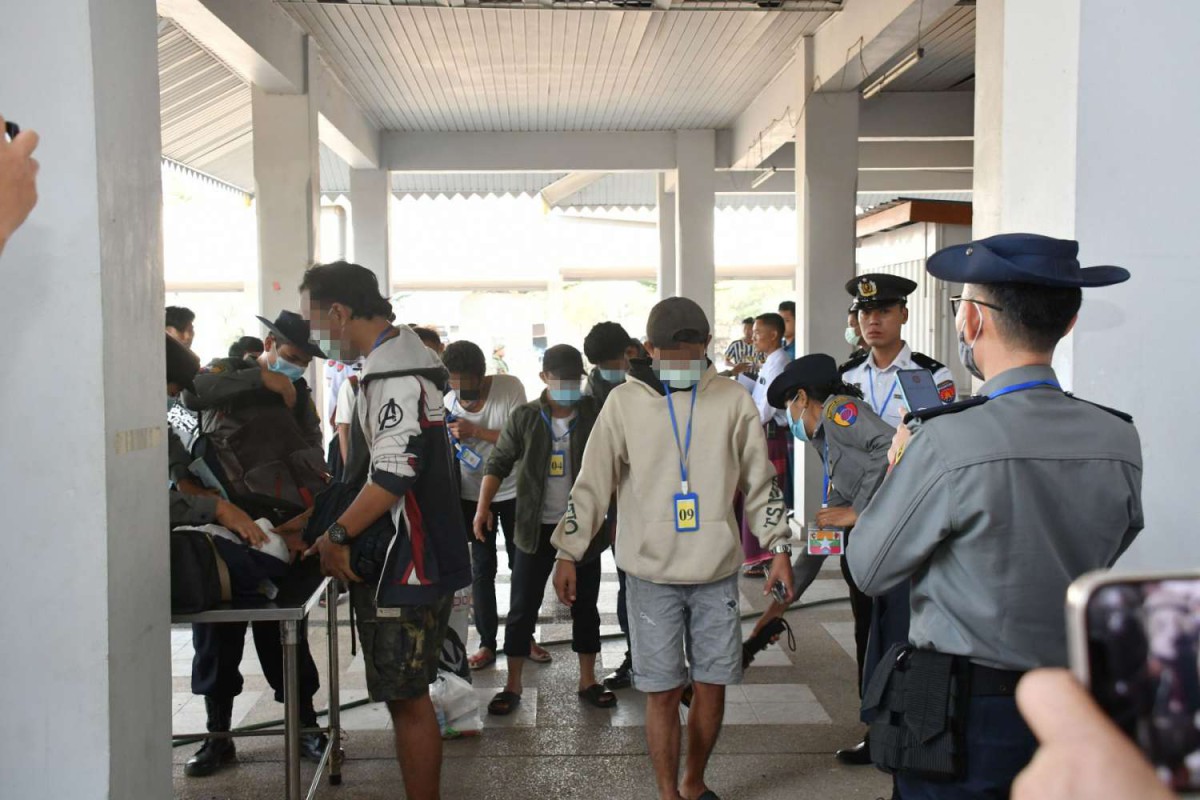Are online scams an issue of organized crime or politics ?

690

Tun Mon Thet (NP News) - March 3
With the rapid advancement of information technology and artificial intelligence, coupled with the growing use of social media, e-communication, and e-payments, crime syndicates have increasingly turned to exploiting personal data breaches to deceive unsuspecting victims.
Call center syndicates, originally operating from regions like Macao, Hong Kong, and Taiwan, have recently shifted their operations to territories where security and the rule of law are weaker, particularly in Southeast Asian countries.
Scam operations can simply be viewed, in this sense, as a form of crime that extends beyond national borders, largely due to the criminals' use of global computer networks and the internet. Given their transnational and cyber-driven nature, effectively cracking down on telecom scams requires robust intergovernmental cooperation. Consequently, the governments of the key stakeholders—China, Myanmar, Thailand, Laos, and Cambodia—are working together in combating these cybercrime syndicates.
However, with the call centers currently located in the Myanmar-Thailand border region, Myanmar is under significant political pressure from countries aligned with or supportive of the United States. Pro-American ASEAN nations are using the online scam issue as a pretext to exert further pressure on Myanmar, aiming to isolate and undermine the country amidst its ongoing political crisis.
Despite the principles outlined in the ASEAN Charter, the Five-Point Consensus on Myanmar contradicts key elements of the Charter, particularly the principles of non-interference, and respect for independence and sovereignty. Clause 2 of Article 2 of the ASEAN Charter clearly stipulates:
a. Respect for the independence, sovereignty, equality, territorial integrity, and national identity of all ASEAN Member States;
e. Non-interference in the internal affairs of ASEAN Member States;
f. Respect for the right of every Member State to lead its national existence free from external interference, subversion, and coercion.
In light of these provisions, U Thein Tun Oo, executive director of the Thayninga Institute for Strategic Studies, comments: “I don’t have any special remarks on ASEAN’s behavior towards Myanmar. Since ASEAN is not adhering to the principles it is based on, regardless of Myanmar’s cooperation or lack thereof, ASEAN will not be pleased with the situation.”
What is more, Anwar bin Ibrahim, the Malaysian Prime Minister, currently serving as the ASEAN Chair and Thailand’s former Prime Minister Thaksin met and discussed Myanmar issue, including drug and human trafficking, and scam operations along Myanmar-Thai borderline, without Myanmar representative, in Brunei last week.
In fact, scam operations linked to human trafficking, drug trafficking, prostitution, torture, murder, and forced labor are deeply entrenched in various interests, including the involvement of Thai officials and armed insurgent groups in Myanmar, particularly rebel leaders with Thai citizenship, such as those from the Karen National Union (KNU). It is crystal clear that all victims were lured and trafficked through Thailand. In response to being accused by multiple parties as the mastermind behind these scam operations, the Border Guard Force (BGF) leader, Saw Chit Thu, stated, "We did not carry any of them, and they did not come from the sky."
U Thein Tun Oo comments: “The ways Malaysia and Thai approaching on the cyber scam issue towards Myanmar will be different. Malaysia always has a negative view of Myanmar, including the Bengali issue. On the other hand, Thailand's approach is different, as their high-ranking officials are personally involved in the matter; it aims to reach a resolution. However, Thai cannot blame solely Myanmar for this issue, but collaboration.”
However, Thailand’s strategic interests in profiting from its geostrategic position should not be overlooked, especially as Myanmar faces a range of multifaceted challenges and pressures. Thailand’s commitment to infrastructure development through cooperation with China was clearly demonstrated during Paetongtarn Shinawatra’s recent visit to China. Additionally, Thailand regularly engages in military cooperation with the U.S., particularly through the Joint Military Exercise Cobra Gold, the largest joint and combined military exercise in the Indo-Pacific region yearly.
At present, the 44th annual Joint Exercise Cobra Gold 2025 (CG25) is taking place in Thailand from February 25 to March 7, 2025.
Chairman of the Arakan Front Party, Dr. Aye Maung, remarks: “Since the United States is shifting its policies, it can be analyzed that pro-American countries are facing difficulties. Their governments, by leveraging ASEAN's influence, aim to play the political game between China and the United States. It is not surprising that seasoned politicians such as Thaksin and Anwar Ibrahim are tending to work together to suppress Myanmar together with the Chinese Belt and Road Initiative (BRI) and the online scam crisis.”
U Khin Maung Zaw, joint-secretary of the Myanmar Institute of Strategic and International Studies (MISIS), have explained: “Myanmar has primarily resolved its issues by working closely with neighboring countries that are directly involved in its affairs, with China and Thailand playing key roles. ASEAN, on the other hand, has become sidelined. To be more precise, the original five ASEAN countries’ priorities and agendas are now being overshadowed by the newer members, who are simply following the lead of the more influential powers. ASEAN continues to focus on Western agendas like democracy, human rights, and gender balance, which are not aligned with Myanmar’s needs.”
“Myanmar has already distanced itself from ASEAN, and the bloc is no longer a necessity for Myanmar. ASEAN's role is now limited to making decisions about Myanmar, whether Myanmar agrees or not,” U Khin Maung Zaw added.